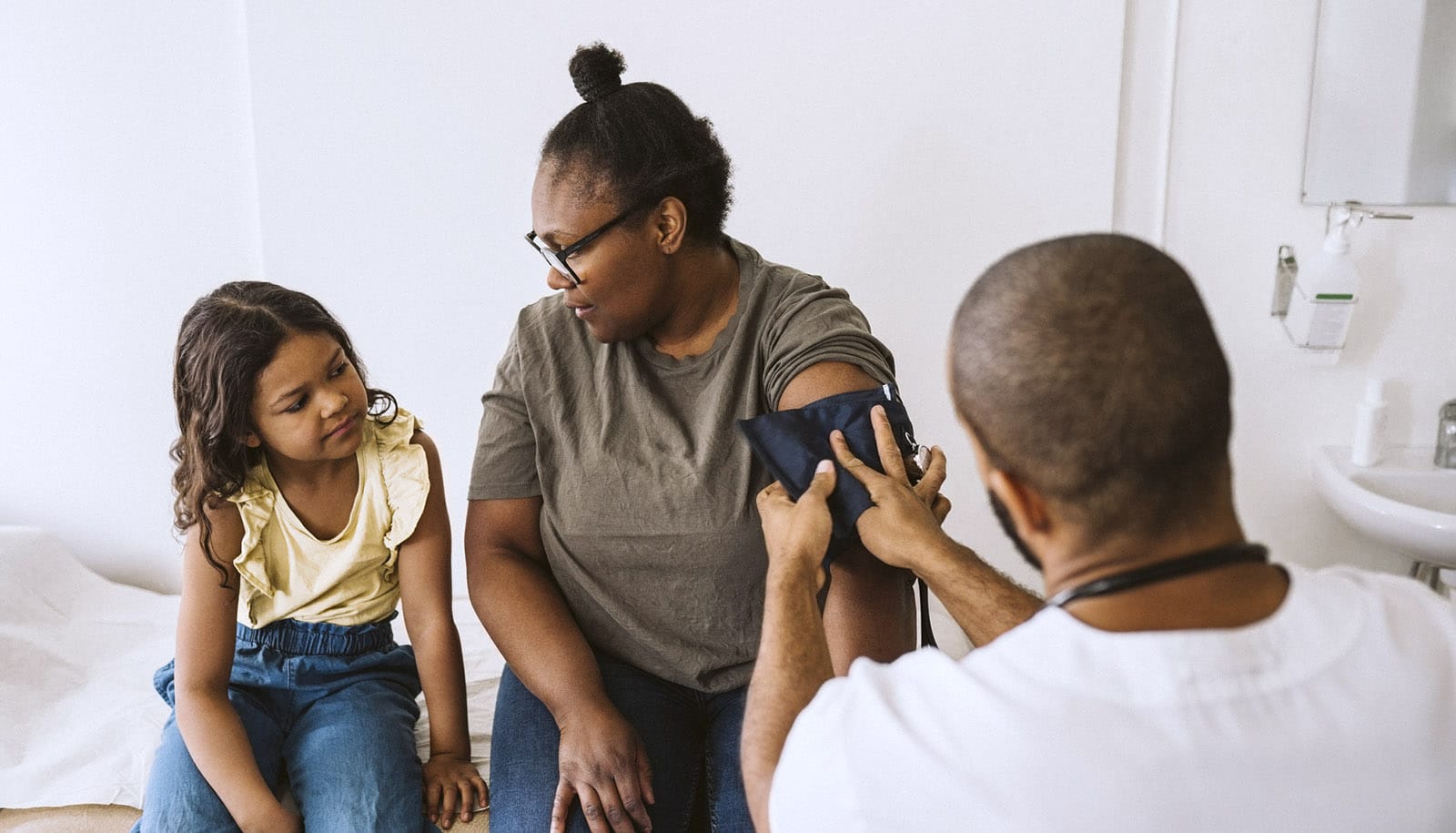
High blood pressure conditions during pregnancy increase cardiovascular disease risk 10 years later, research finds.
Women who developed hypertensive disorders of pregnancy (HDP), which include preeclampsia and gestational hypertension, during pregnancy were more than twice as likely to develop hypertension a decade later compared to those who did not have HDP during pregnancy, according to researchers at the Perelman School of Medicine at the University of Pennsylvania.
The study included 130 women, 85% of whom self-identified as Black. The results appear in the Journal of the American College of Cardiology.
HDPs are serious conditions that affect up to 20% of all pregnancies, and they can carry serious risks for mother and baby, including preterm birth, organ damage, and a greater chance of cardiovascular disease later in life. These disorders are particularly common in communities of color, most notably among Black women.
“Pregnancy can often be a stress test for future health,” says lead author Lisa Levine, associate professor in reproductive health, chief of maternal fetal medicine, and co-director of the Pregnancy and Heart Disease Program at Penn Medicine. “Many complications of pregnancy, such as HDP and preterm birth, are associated with increased risks later in life.
“We knew from epidemiologic data that patients who have had high blood pressure in pregnancy (or HDP) are at higher risk of heart disease later in life, but it had not been evaluated to this extent at the 10-year mark. We looked at this question in a group of people, largely Black women, who are at a higher risk of both HDP and heart disease.”
It is well established that cardiovascular disease (CVD) risk increases for women 20 to 30 years after they experience an HDP, but relatively little was known about risks just 10 years after pregnancy, when patients are still relatively young and may not yet be experiencing cardiovascular symptoms.
A total of 135 patients, 84 with and 51 without a history of HDP, were included in the study. Of these, 56% of women with a history of HDP developed stage 2 chronic hypertension compared with 24% of women without a history of HDP, translating to a 2.4-fold increased risk of new hypertension 10 years after pregnancy. They performed extensive testing of cardiac and vascular function and found no other significant differences between women with and without HDP.
The investigators found that women with hypertension 10 years after delivery, regardless of whether or not they had HDP at the time of pregnancy, was associated with early signs of cardiac damage. This led investigators to conclude that hypertension itself was the main driver behind the future risk of CVD after pregnancies complicated by HDP.
The findings underscore the importance of blood pressure screenings and preventive health. A total of 60% of all patients in the study who met criteria for either stage 1 or 2 hypertension had not received a formal diagnosis and were only diagnosed with hypertension because of enrollment in the study.
“This highlights a huge opportunity for intervention and prevention,” says coauthor Jennifer Lewey, a cardiologist and co-director with Levine of Penn Medicine’s Pregnancy and Heart Disease Program. “People do not always have easy access to care, and many mothers will prioritize their child or children’s health and medical appointments over their own. Diagnosing hypertension earlier and treating earlier could be exactly what’s needed to prevent future heart disease.”
Levine, Lewey, and their colleagues recommend more hypertension screening for women at high risk, particularly when an HPD is in their history. They also call for similar studies to enroll more Black women, who historically are less often included in research and who continue to face disproportionate rates of both HPDs and cardiovascular disease.
Support for the research came from the National Heart, Lung, and Blood Institute; the National Institutes of Health; and the American Association of Obstetricians and Gynecologists Foundation (AAOGF) Bridge Funding Award.
Source: Penn